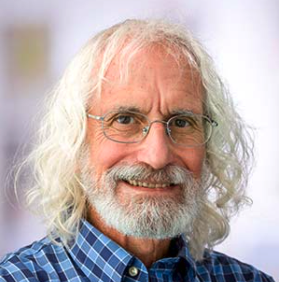Philip D.
Greenberg
M.D.

(206) 667-4462
Fred Hutchinson Cancer Center
1100 Fairview Ave. N, D3-100
Seattle, WA 98109
Photo: Fred Hutch
Education, Training, Board Certifications
- M.D., State University of New York, Downstate Medical Center
- Internship and Residency, University of California, San Diego
- Fellowship in Immunology, University of California, San Diego
- Fellowship in Oncology, Fred Hutch
- Internal Medicine, American Board of Internal Medicine
Clinical Expertise
- Immunotherapy
Affiliations
Publications
Research and/or clinical interests
Dr. Greenberg was a founding member of the UW Department of Immunology and the Fred Hutch Program in Immunology, helping develop productive training and research environments for investigators involved in basic immunology and translational cancer immunology research. Internationally recognized as a leader in the cancer immunology field, he has trained more than 40 investigators who have gone on to develop independent research careers, including many who have also become leaders in the field of immunology. His laboratory performed some of the earliest studies on how immune T cells can recognize and eliminate malignant cells in the context of progressing tumors.
First using small animal models, the Greenberg lab developed technologies to produce functional, protein target (antigen)-specific T cells. In the early 1990s, Dr. Greenberg and colleagues then showed that T cells collected from human peripheral blood can be used to generate antigen-specific T cells in the lab, and that such T cells can then be reinfused into patients to seek and destroy diseased cells. He was a leader of the first group to formally demonstrate that such ‘adoptively’ transferred antigen-specific T cells can recognize and eradicate disseminated cancer cells. Dr. Greenberg’s team went on to clarify the requirements for T cells to persist and completely eliminate tumors. These early studies also revealed what was then a very surprising finding: that one type of tumor antigen-specific T cells (CD4+) can not only help the type of T cells (CD8+) that are best known for directly killing tumor cells but can also help eradicate disseminated tumors even without CD8+ T cells.
Dr. Greenberg’s findings initially led to approaches to protect immune-compromised patients from cytomegalovirus infections and to enhance control of HIV infections, which are both major causes of disease and mortality worldwide. More recently, his team has developed anti-cancer therapies using naturally isolated or genetically-engineered T cells. His lab continues to innovate using molecular strategies to create engineered T cells that can show sustained function despite obstacles posed by progressive tumors.
Dr. Greenberg’s laboratory continues to make advances in both basic immunology and cancer immunobiology, and in the development and assessment of adoptive therapies with antigen-specific T cells targeting human malignancies and chronic infections. They remain leaders in the development and optimization of methods to efficiently generate and modify therapeutic T cells. These include technologies that are now widely employed for the rapid expansion and genetic engineering of T cells to carry antigen-specific T cell receptor (TCR) molecules. Currently, the Greenberg team is developing methods to 1) isolate high affinity TCRs specific for defined tumor targets to engineer tumor-reactive T cells, and 2) genetically re-program therapeutic T cells so they can eradicate even large tumors and overcome often immune-suppressing tumor microenvironments.
Ongoing efforts also include identifying and validating new tumor antigen targets and developing therapies with natural or genetically-engineered T cells for patients with melanoma or leukemia, or with lung, ovarian or pancreatic cancers. Current antigen targets for which TCRs have been isolated include WT1, Cyclin A1, mesothelin, and mutations in driver oncogenes, and the TCRs are being used to create engineered CD8+ T cells that are being tested preclinically for their ability to eliminate AML cells as well as several solid tumors.



